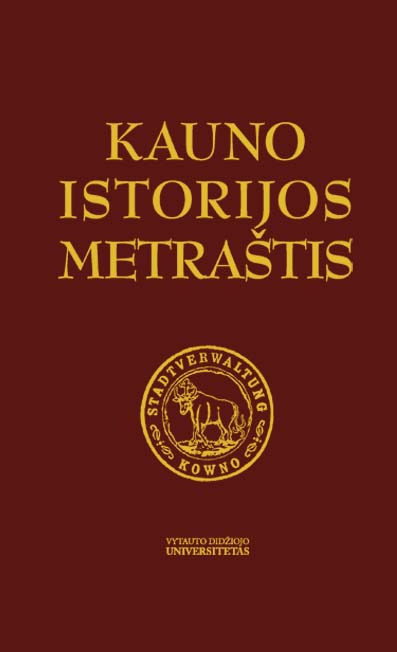Vytauto Didžiojo universitetas nacių okupacijos metais ir antinacinė rezistencija
Vytautas Magnus University During the Nazi Occupation and Anti-Nazi Resistance
Author(s): Audronė VeilentienėSubject(s): History, Cultural history, Military history, Higher Education , History of Education, WW II and following years (1940 - 1949)
Published by: Vytauto Didžiojo Universitetas
Keywords: Vytautas Magnus University; Nazi occupation; Anti-Nazi resistance;
Summary/Abstract: On July 3, 1941 the Provisional (Caretaker) Government, which had many university professors as its members, returned the name Vytautas Magnus to the University. All University managers appointed by the Soviet government were dismissed. The German occupation authorities also demanded the dismissal of Jewish professors and students of Jewish and Polish nationality. The Jewish teachers and students were immediately sent to the ghetto established in Vilijampolė. The Lithuanian intellectuals managed to rescue a lot of Jewish people including several teachers of Jewish origin. On March 17, 1943 the German army occupied almost all buildings of the University and the studies were interrupted. The teaching process, however, went on, graduation diplomas were issued and the teachers were paid for their research works. Some professors organized the Higher Technical Department under the Adults’ evening school and started medicine courses where the university first year curriculum was illegally delivered.During the Nazi occupation, mass civil anti-Nazi resistance of different forms took place accompanied by the abundance of underground press and numerous anti- Nazi resistance organizations with the participation of the University students and staff. The aim was to re-establish independence of Lithuania. Due to the persistent underground actions, mobilization to the SS units pursued by the Nazi German administration failed. The occupational authorities felt a strong resistance led by the Lithuanian intellectuals; therefore, on March 16, 1943 the Germans detained 46 hostages, i.e. researchers, professors, priests, and activists of political organizations, and sent them to the Stutthof concentration camp. In summer 1944, with the impending return of the Soviet army, as many as a third of University staff and students headed for the West.
Journal: Kauno istorijos metraštis
- Issue Year: 2016
- Issue No: 16
- Page Range: 195-217
- Page Count: 23
- Language: Lithuanian

